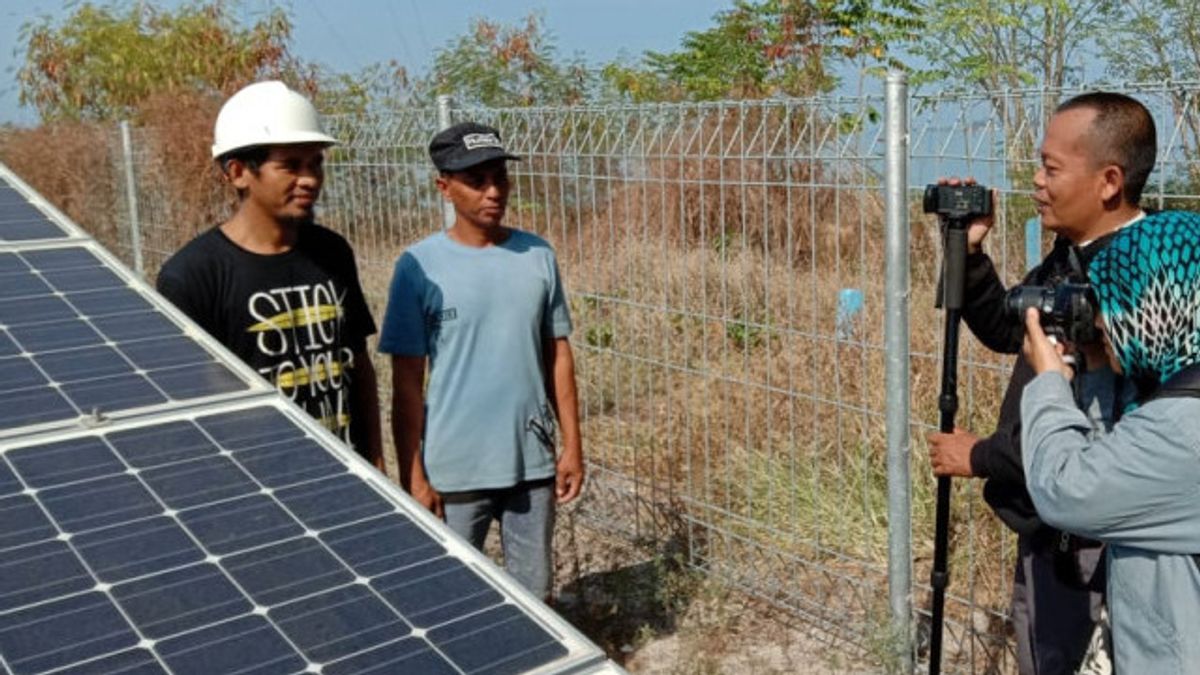JAKARTA - Research coordinator from the Institute for Essential Services Reform (IESR) Pamela Simamora said the use of new and renewable energy (EBT) continues to increase and solar power is becoming the new king in the world's energy sector.
This was stated by Pamela at a periodic virtual meeting to discuss Energy Transition held by IESR in collaboration with the Society of Indonesian Environmental Journalists (SIEJ).
He said, of a number of types of EBT that can be developed in the future to replace fossil energy, the type of solar energy has the greatest potential compared to other types of EBT, both globally and nationally.
Meanwhile, from the use of EBT, he continued, there is a comparison between global and national use as follows, the renewable energy mix in the world's primary energy is increasing, while Indonesia is still growing slowly.
As for the commitment, Pamela said, the world is ready to end the coal era, while Indonesia still continues to depend on coal-fired power plants.
In terms of the largest renewable energy investment in the world's economic sector, Indonesia is still stagnant.
"When viewed in terms of investment costs and leveled electricity costs (LCOE), solar and wind energy continues to decline, cheaper than dirty material energy," said Pamela, Sunday, September 19.
Another influence, the price of solar energy in Indonesia dropped dramatically, causing solar plus batteries to be more competitive in price.
Meanwhile, Head of Sub-Directorate for Supervision of EBTKE Infrastructure Development, Ministry of Energy and Mineral Resources Mustaba Ari Suryoko representing the Director of Various EBT DJEBTKE, Ministry of Energy and Mineral Resources Chrisnawan Anditya said,
He said, NRE was recorded as the highest contributor to the reduction of carbon dioxide emissions, namely 34.29 million tons of CO2 in 2020 compared to other mitigation actions to reduce the cause of the greenhouse effect.
Of the five mitigation actions to reduce the greenhouse effect of carbon dioxide, NRE was able to exceed energy efficiency mitigation which only reduced emissions of 12.97 million tons of CO2, followed by low-carbon fuels of 8.39 million tons of CO2, the use of clean generation technology was recorded at 5.91 million tons of CO2 and other activities 2.79 million tons of CO2.
The English, Chinese, Japanese, Arabic, and French versions are automatically generated by the AI. So there may still be inaccuracies in translating, please always see Indonesian as our main language. (system supported by DigitalSiber.id)













